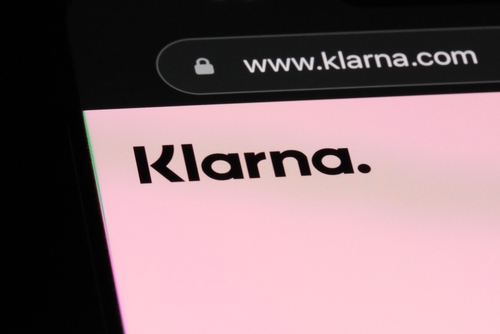Warning on risks: Financial contracts for difference are complex instruments and are associated with a high risk of rapid financial losses due to leverage. On 76.44% of retail investor accounts, financial losses occur when trading financial contracts for difference with this provider. You should consider whether you understand how financial contracts for difference work, and whether you can afford to take the high risk of suffering financial losses. Please read the Risk Disclosures.


Klarna: The Scandinavian Fintech Tests Wall Street
Swedish company Klarna is one of the biggest pioneers in the “Buy Now, Pay Later” (BNPL) space, which allows customers to shop immediately and pay later in several interest-free instalments. During the pandemic, when online sales were booming, Klarna experienced explosive growth, with its valuation soaring to as much as $45 billion.* However, the situation has changed since then. The market has cooled, and the expected IPO valuation is now in the range of $13–14 billion. [1]
Klarna has over 111 million active customers and collaborates with nearly 700,000 merchants worldwide. In the first half of 2025, it achieved revenue of $823 million, representing a 20% year-on-year increase compared to the same period in 2024. The company also reported an operating profit of $13 million, a significant turnaround from last year’s loss. In an environment where investors are increasingly unwilling to tolerate long-term losses, a return to profitability is undoubtedly a positive factor.*
The company plans to debut on the New York Stock Exchange (NYSE) in mid-September. The planned offering is expected to raise approximately $1 billion in new capital, with some shares also expected to be sold by existing shareholders. The exact number of shares and the percentage allocated to retail investors have not yet been disclosed. This IPO is closely watched, as it will be one of the largest European debuts on an American exchange in recent years.
Leading Wall Street names stand behind the underwriters, with Goldman Sachs, Morgan Stanley, and JPMorgan Chase playing key roles, supported by several other banks. Their participation signals strong interest in ensuring a successful market launch for Klarna and reaching a broad spectrum of institutional investors.
Klarna’s IPO will be a test not only for the company itself but also for the entire European fintech sector. The question remains whether it will succeed in convincing American investors that BNPL has a future in a period of rising interest rates and tighter regulation.
Klarna represents an opportunity to invest in a globally recognized brand that combines a strong market position, a massive customer base, and a clear path to profitability. At the same time, it is a sector exposed to regulation and fierce competition, making it crucial to monitor how the company adapts to new conditions and maintains profitability post-IPO.
*Past performance is not indicative of future results
[1] Forward-looking statements are based on assumptions and current expectations, which may be inaccurate, or on the current economic environment, which may change. Such statements are not guarantees of future performance. They involve risks and other uncertainties that are difficult to predict. Results may differ materially from those expressed or implied in any forward-looking statements.